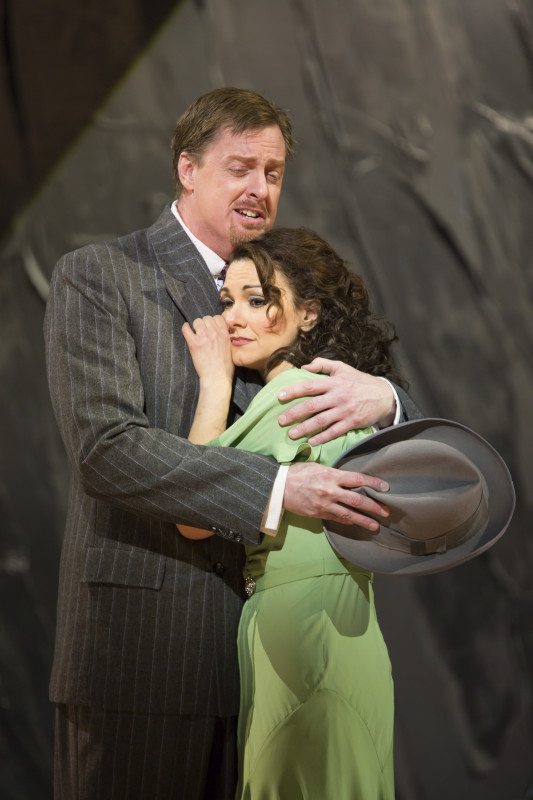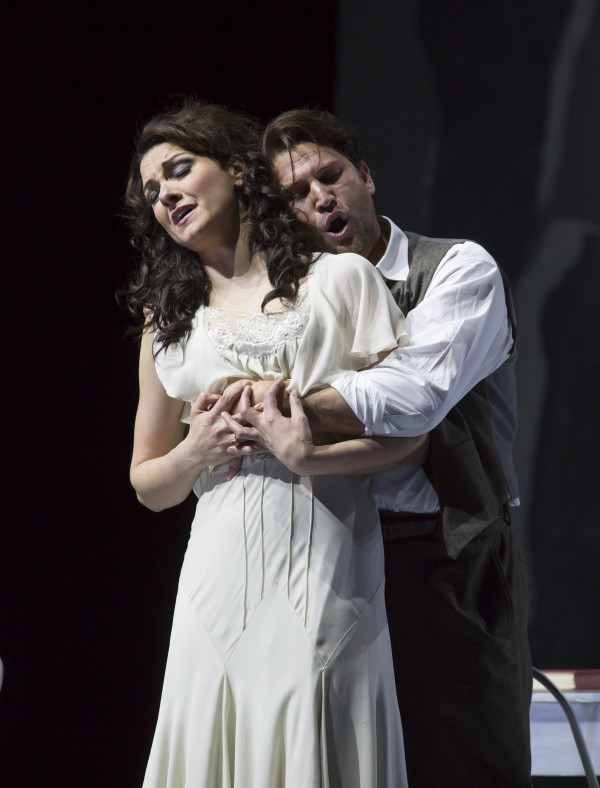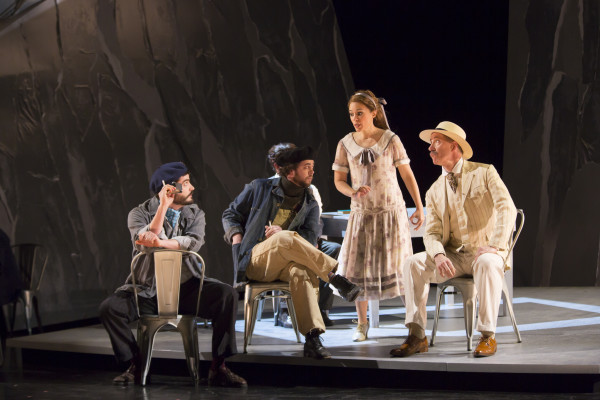
News
Garber Privately Tells Faculty That Harvard Must Rethink Messaging After GOP Victory

News
Cambridge Assistant City Manager to Lead Harvard’s Campus Planning

News
Despite Defunding Threats, Harvard President Praises Former Student Tapped by Trump to Lead NIH

News
Person Found Dead in Allston Apartment After Hours-Long Barricade

News
‘I Am Really Sorry’: Khurana Apologizes for International Student Winter Housing Denials
‘Werther’ Celebrates Passion and Tragedy
Tender and passionate, romantic and epic, beautiful and destructive, Boston Lyric Opera’s new production of “Werther” gave a powerful interpretation of the archetypal legend of unrequited love. An iteration of French musician Jules Massenet’s 1887 adaptation of Johann Wolfgang von Goethe’s classic, the performance, which ran March 11 to 20, was BLO’s first rendition of the piece in almost 20 years. What they brought to the stage—elegant and exuberant—was more than worth the wait.
Werther (Alex Richardson), a sensitive and melancholic young poet, falls instantly in love when he meets Charlotte (Sandra Piques Eddy), a beautiful young girl who has just become engaged. While her fiancé is away, Werther becomes a regular visitor to Charlotte and her siblings, for whom she merrily cares after her mother’s early death. Over time, he falls deeper and deeper into the quagmire of love, all the way to the level of madness. Charlotte, while fond of Werther, remains loyal to her fiancé, Albert (John Hancock), whose unexpected return forces the two to stay apart. Much older than both Werther and Charlotte, Albert soon realizes Werther’s special feelings for Charlotte. Understanding the young man’s sentiment, Albert provides emotional support for him. Werther, however, knowing that Albert is the best companion for Charlotte but unable to renounce his love for her, decides to end the love triangle in a violent way.
Since Goethe published “The Sorrows of Young Werther” in 1774, the story between Werther and Charlotte has inspired generations. One of them happened to be Massenet, who immediately decided to adapt the work for opera after a teary read, according to the program notes. The biggest change in the plot is that while the novel is narrated solely from Werther’s perspective, the opera is divided into two parts. In Acts I and II, the audience follows Werther as he falls in love with Charlotte, but in Acts III and IV, Charlotte becomes the lead character after Werther has to leave her; for the first time, the audience gets a glimpse of her reciprocal love for Werther, which she hides from the young poet due to her duty to Albert.
This change of perspective turned out to be extremely successful: Charlotte’s confessions in Act III shone as the highlight of the show. Eddy, who is on the Metropolitan Opera’s roster this year, gave a convincing performance that could melt even a heart made of stone. When she read Werther’s letters in a beautiful, trembling voice, it was not hard to believe, as Albert tells Werther, that any man would fall in love with her. When she finally saw her lover at the end of the act, the couple unleashed their passion in one of the few times in the opera when multiple characters sing together. David Angus, the music director and conductor of Werther, writes that he discovered these vocal lines in Massenet’s original handwritten manuscript and that they may have never been played before—a truly surprising fact, as the brilliant power of this section marked the emotional climax of the show.
BLO also made some interesting innovations with regard to staging and set design. The sumptuous stage featured three big screens that played the faces of characters whenever someone on the stage was missing them. At the beginning of Act III, when Werther’s letters arrived to Charlotte, they spread not only on the floor but also across the screens. Such visual complements externalize the characters’ psychology and expand the show’s emotional power. Similarly, when Charlotte stayed alone in her room thinking about Werther, Werther always stood in the background listening to her whispers, even though he was, in the story, miles away from her. All these made it easier to identify with the characters’ emotions and made the fate of the lovers ever more tragic.
The story of Werther was first told by a German writer; it was adapted by a French musician; it has now been presented by an American opera group to its audience in Boston. Across thousands of miles and hundreds of years, the story was as relatable as ever. BLO’s “Werther” was truly a heartfelt celebration of universal human emotions.
Want to keep up with breaking news? Subscribe to our email newsletter.



